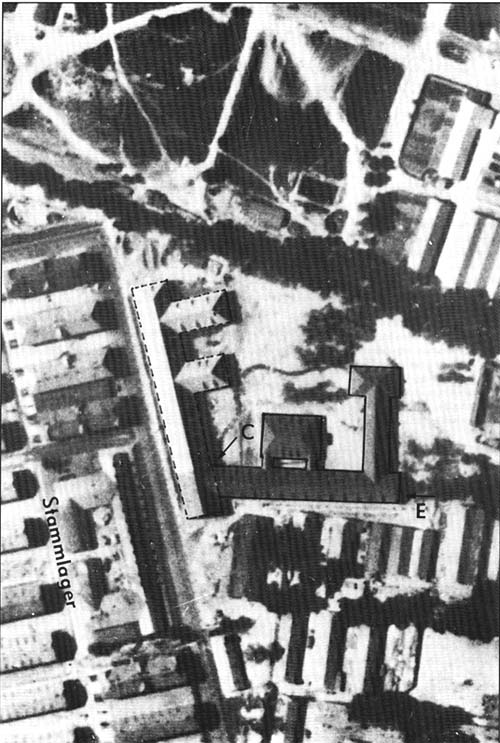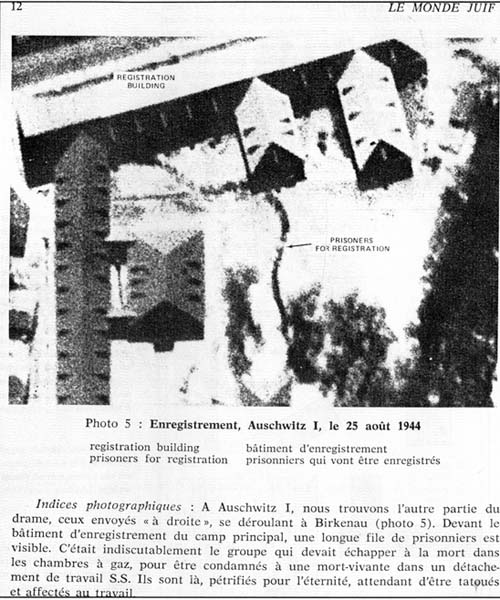
 |
||
| Photo 13: Detail of an aerial photograph of the main camp taken on 25th August 1944 |
||
 |
||
| Photo 14: | ||
|
||
| On the aerial photograph, the different parts of the reception building ("rapid” and “extended” circuits, gas chambers) are outlined with a solid line. the big laundry with a dotted line. Presented in the 97th issue of the CDJC ("Le Monde Juif.” January-March 1980. “Auschwitz à vol d'oiseau” ) [A bird’s eye view of Auschwitz]) the photograph [Photo 14] has been interpreted incorrectly. The entrance to the reception building for new arrivals selected as fit for work is located at point “E” (complete photo). The line of prisoners in the yard is entering at “C” i.e. one of the entrances to the laundry. The prisoners — already registered — are most probably waiting to hand in their clothes for washing and receive clean ones. This error by the authors, Brugioni and Poirier, shows the extreme care that must be taken in interpreting the evidence and demonstrates that a global knowledge (written archives, photographs. original drawings. present state of the premises, eyewitness accounts) is almost essential before any explanation can be put forward. The studies presented — among others — by the “revisionists” are no exception to this rule, and a lack of respect for it has led them into serious error. Through establishing certain precise points — often unknown to the general public — they imagined that they had been able to disprove the existence of “homicidal” gas chambers by rejecting any other document negating their thesis and ignoring all the remaining documentation containing many traces confirming this reality. A further aggravating circumstance is that once they have accepted something as fact, this becomes established and irreversible. My own experience has taught me to be prepared to revise my initial interpretations which were often inexact and sometimes even quite wrong, because I lacked this “global view”. There were and are still some Polish historians who possess this knowledge, but it has never been fully exploited due to material or intellectual constraints, deliberate or otherwise. |
| Page 40 is a blank page | ||||
